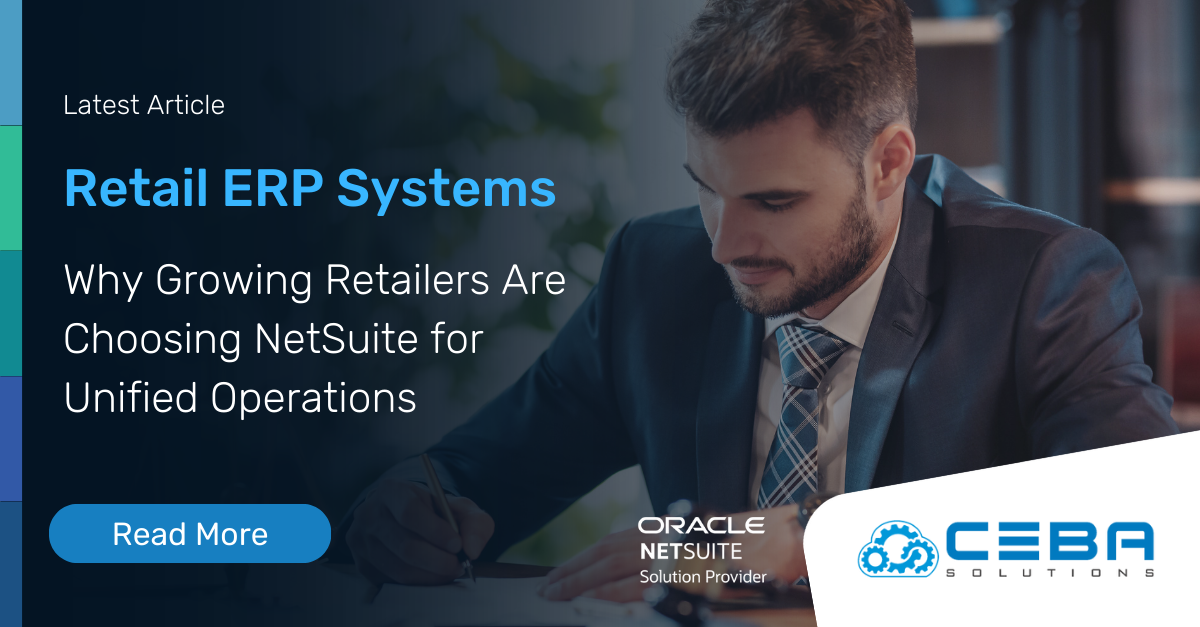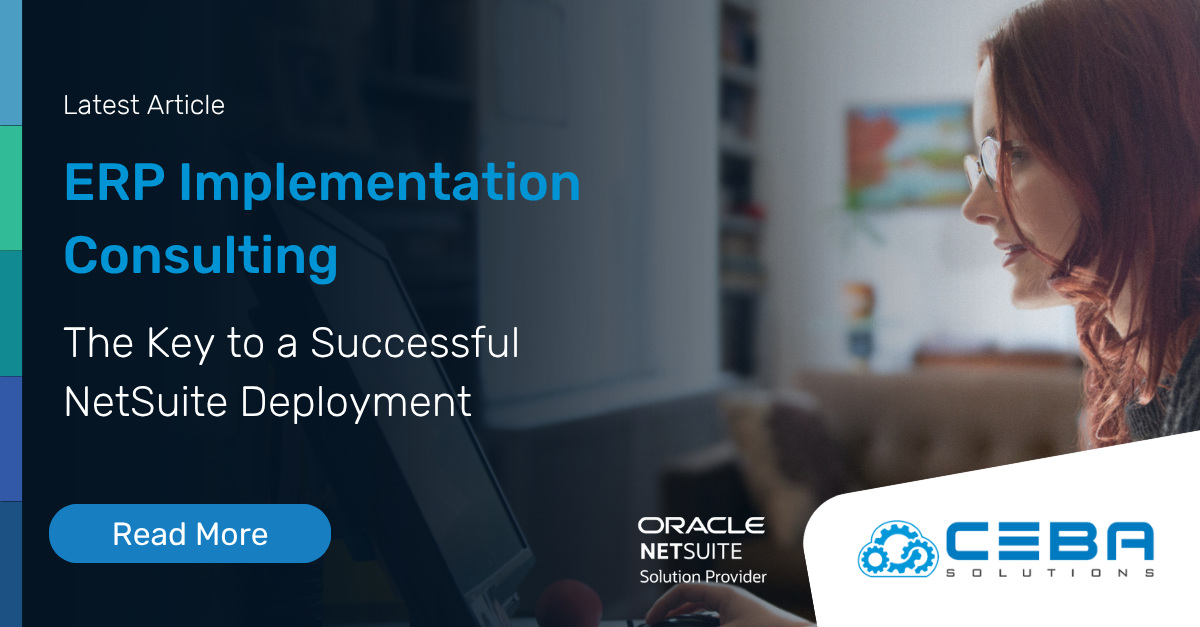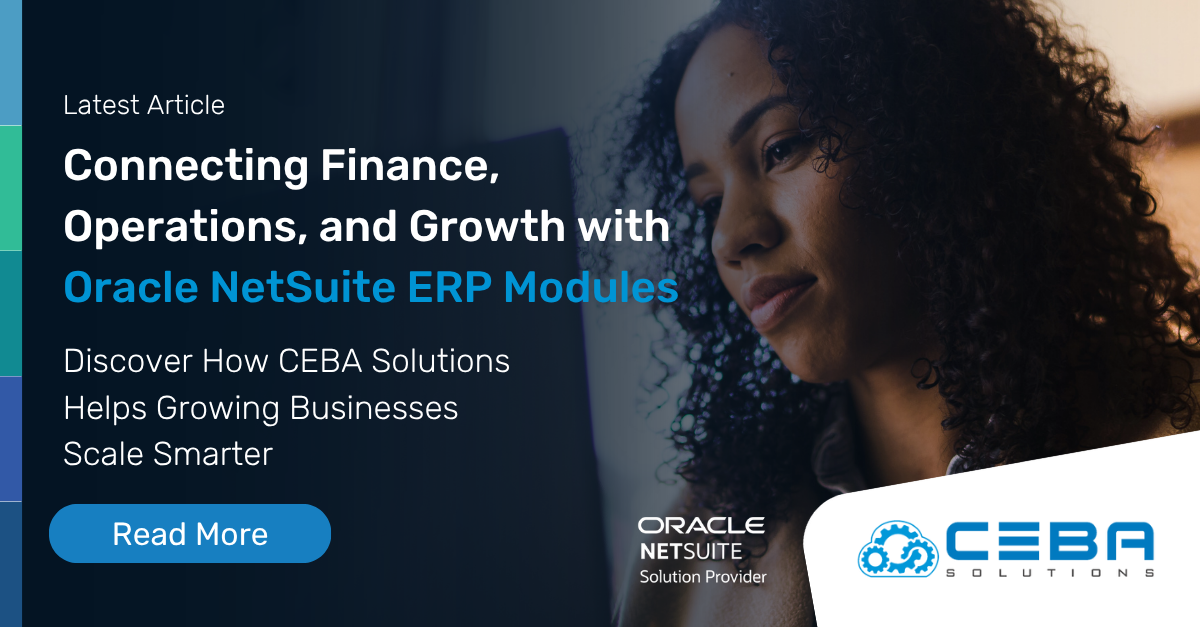
Optimizing Supply Chain Management with Advanced Software Tools
Optimizing Supply Chain Management with Advanced Software Tools
Companies that deal with physical products must focus on supply chain optimization to stay efficient and competitive. By 2025, artificial intelligence will be fundamentally transforming supply chain management. AI's projected 25% integration into supply chain technology will give businesses significant opportunities to better their operations and lead them to make more profitable decisions.
AI-powered solutions are appearing everywhere, and supply chain management is no exception. More and more, businesses are turning to sophisticated software- such as NetSuite, which recently integrated AI- to run their operations more smoothly. These programs learn from experience, understand data at an almost human level, and can perform tasks we have always assumed require human intelligence.
The Rise of AI in Supply Chain Management
AI-Powered Solutions
Companies are now using advanced software, like NetSuite's AI tools, to boost their supply chain management. These tools use machine learning, data science, and AI to change how supply chains work. They look at lots of data and find patterns that humans can't see.
This helps businesses make smarter choices, improve their processes, and keep up with market trends.
Streamlining Processes
AI-powered supply chain solutions make processes smoother across the whole chain. They automate tasks, cutting down on manual work and mistakes. For example, NetSuite's AI can adjust inventory levels based on demand, without needing constant human help.
This automation helps in many areas, from buying to delivering, making the system more efficient and quick to respond.
Predicting Market Trends
AI and machine learning are great at predicting market trends by analyzing lots of data. This lets businesses see changes in demand, spot supply chain problems, and plan ahead. With these insights, companies can manage their stock, plan production, and make smart choices about where to buy and sell. NetSuite's forecasting tools are very good at this, helping businesses stay ahead and adapt to market changes.
Facilitating Informed Decision-Making
AI's biggest impact is helping businesses make better decisions quickly. AI systems like NetSuite give real-time insights and advice, helping managers make faster, more informed choices. They can look at complex situations and suggest the best actions. This support is very valuable in today's fast business world, where quick, accurate decisions can make all the difference.
Impact of the COVID-19 Pandemic
Production Stoppages
The COVID-19 pandemic has hit global supply chains hard, with stoppages being a big problem. Companies have had to rethink their production plans and find flexible solutions. Advanced software, like NetSuite, has helped by giving real-time views of production and letting for quick changes. These systems also help find new production sources and plans to deal with shutdowns.
Inventory Imbalances
The pandemic has caused serious inventory problems in many industries. Changes in demand and supply chain issues have left businesses with too much or too little stock. Supply chain software, like NetSuite, has been key in fixing these issues by forecasting demand and managing inventory better.
NetSuite's tools let businesses adjust their stock levels based on current data, reducing waste and making sure products are where they're needed.
Supplier Reliability Issues
The pandemic has shown how fragile global supply chains can be. Companies face issues like delayed shipments and quality problems. To tackle these, supply chain software helps diversify suppliers and assess risks better.
NetSuite's tools offer detailed analytics on supplier performance. This lets businesses spot problems early and make smart choices about who to work with.
Key Features of Supply Chain Optimization Software
Demand Forecasting
Demand forecasting is key in supply chain software. It uses past data and analytics to predict future needs. This helps manage inventory better by knowing what products are needed and when.
Tools like NetSuite's consider many factors, including trends and social media. This leads to more accurate predictions. By aligning production with these forecasts, companies avoid stock issues and save costs.
Inventory Management
Good inventory management keeps stock levels right and products available. Supply chain software lets you track inventory in real-time. It can even trigger reorders automatically.
NetSuite's tools optimize stock placement and predict stock issues. This reduces costs and improves meeting customer demand.
Supplier Management
Supplier management tools help manage relationships from start to finish. They include contract tracking and performance monitoring. This gives insights for better negotiations and risk management.
NetSuite's module offers portals for better communication with suppliers. This streamlines processes like ordering and resolving issues.
Order Management
Order management is vital in supply chain software. It automates order processing and tracking. Advanced features like NetSuite's route orders smartly for better efficiency.
Real-time tracking improves customer experience. These systems reduce errors and increase satisfaction.
Analytics and Reporting
Analytics and reporting are essential in supply chain software. They provide insights for better decision-making. NetSuite's tools offer self-service reporting and dashboards for real-time data.
Advanced analytics spot trends and issues early. This enables proactive management and continuous improvement.
"Artificial intelligence is becoming an integral part of supply chain management. It allows businesses to make faster, data-driven decisions, streamline operations, and remain competitive in a rapidly evolving market." - Zabe Siddique, CEO - CEBA Solutions
Benefits of Implementing Supply Chain Optimization Software
Supply chain optimization software boosts business performance in many ways. Let's look at the main benefits.
Improved Operational Efficiency
Supply chain software makes operations more efficient. It automates tasks and streamlines workflows. This saves time and reduces errors.
NetSuite's tools provide real-time insights for better decision-making. This leads to better resource allocation and reduced waste. Improved efficiency is key for staying competitive.
Enhanced Risk Management
In today's market, managing risks is key for success. Supply chain software helps spot and fix risks like delays and demand changes. NetSuite uses AI to predict problems early, helping businesses act fast.
This early warning system lets companies plan for the unexpected. It makes supply chains stronger, avoiding costly downtime. It also keeps businesses running smoothly, even when things get tough.
Handling risks well keeps profits up and reputation strong. It shows customers a company is reliable and cares about their needs.
Increased Customer Satisfaction
Keeping customers happy is vital for success. Supply chain software helps meet customer needs by ensuring timely deliveries. NetSuite's tools track orders and give accurate delivery times, building trust.
It also helps manage inventory well, avoiding stock outs or overstocking. This means products are ready when customers need them. The software also helps solve problems fast, making customers loyal.
Many tools also help the environment by reducing waste and improving routes. This meets the growing demand for green business practices.
Cost Reduction
Supply chain software can cut costs in many ways. It helps manage inventory, reducing carrying costs and excess stock. NetSuite's forecasting prevents overproduction, saving money and resources.
It also helps negotiate better deals with suppliers and find ways to save on procurement. By optimizing routes and consolidating shipments, logistics costs drop. Automation cuts labor costs and errors, saving even more.
These savings can greatly improve a company's bottom line and competitiveness.
Improved Scalability and Flexibility
Supply chain software makes businesses more adaptable and scalable. NetSuite's cloud platform grows with the business, handling more data and transactions without hassle. Its modular design lets companies add features as needed.
This flexibility is great for fast-growing companies or those entering new markets. It helps adjust to market changes or disruptions, keeping businesses agile and resilient. Whether growing or adapting, the software provides the tools needed.
NetSuite: A Complete Solution for Supply Chain Optimization
Supply chain optimization software is essential for today's businesses. NetSuite, a leading cloud-based ERP system, offers a full range of tools for optimizing supply chains. It's a top choice for businesses aiming to improve their supply chain operations.
AI-Powered Supply Chain Management
NetSuite uses AI and machine learning to enhance supply chain management. These technologies analyze data to forecast demand, optimize inventory, and spot disruptions early. By using NetSuite's AI tools, businesses can make smarter decisions, improving efficiency and reducing costs.
Real-Time Visibility and Analytics
NetSuite excels in providing real-time visibility into the supply chain. It offers powerful analytics and reporting tools for instant access to important data. Users can track performance and analyze inventory levels across locations.
This visibility allows for quick management of the supply chain. It helps businesses respond fast to demand changes or issues.
Integrated Demand Planning and Forecasting
NetSuite uses advanced algorithms and machine learning for accurate demand predictions. It considers historical data, seasonal trends, and external factors. This helps businesses align their activities with demand, reducing stockouts or excess inventory.
Comprehensive Inventory Management
NetSuite's inventory management tracks inventory levels in real-time across multiple locations. It includes automated reordering and cycle counting. This system optimizes stock levels based on demand forecasts and lead times, reducing costs and ensuring product availability.
Advanced Order Management and Fulfillment
NetSuite's order management system streamlines the order-to-cash process. It automatically routes orders to the best location based on inventory, shipping costs, and delivery time. It also supports order splitting and drop-shipping, meeting diverse customer needs efficiently.
Supplier Relationship Management
NetSuite offers tools for managing supplier relationships, including vendor portals and performance tracking. These tools help businesses evaluate supplier performance and make informed decisions. Centralizing supplier information streamlines procurement processes.
Scalability and Customization
NetSuite is scalable and flexible, accommodating businesses of all sizes. It can grow with your business and offers customization options. This flexibility allows businesses to tailor the system to their specific needs.
Cloud-Based Architecture
NetSuite's cloud-based architecture offers real-time data access from anywhere. This enables better collaboration and keeps businesses updated with the latest features. It ensures continuous improvement in supply chain technology.
Integration Capabilities
NetSuite integrates seamlessly with other business systems and external partners. This integration extends its functionality and provides end-to-end visibility. It connects with e-commerce platforms, warehouse management systems, and transportation management solutions.
Conclusion
Implementing supply chain optimization software like NetSuite is a significant step for businesses. It enhances operations, reduces costs, and gains a competitive edge. These tools improve efficiency, manage risks, increase customer satisfaction, and reduce costs.
Choosing the right software is key to success. Consider your business size, industry, and growth projections. Select a scalable solution that evolves with your business needs.











